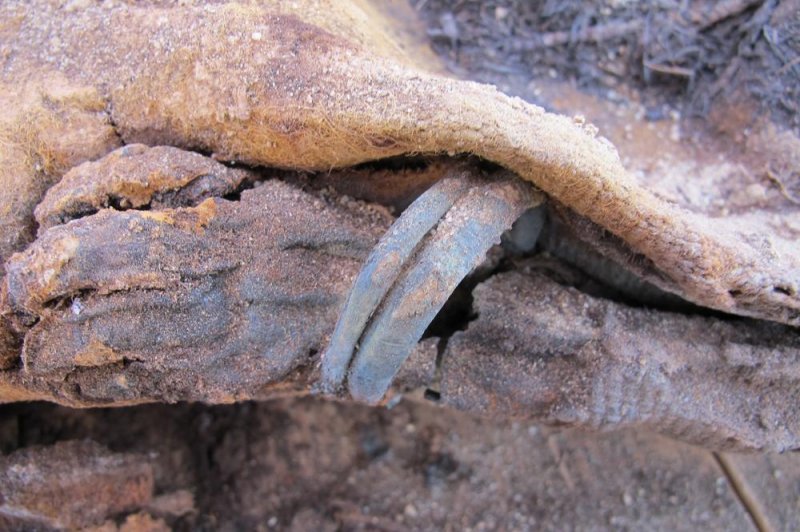Egyptian officials are now disputing claims that BYU archaeologists discovered a cemetery boasting a million mummies. Photo by Professor Kerry Muhlestein/BYU.
CAIRO, Dec. 22 (UPI) -- An Egyptian culture minister is disputing claims that archaeologists have discovered a remote cemetery boasting a million mummies.
"It is not true," Yousef Khalifa, chairman of the nation's antiquities sector, told Al Arabiya News.
The claim was made last week by Kerry Muhlestein, a BYU archaeologist who last week presented his research team's headline-grabbing findings at the Study of Egyptian Antiquities Scholars Colloquium, a conference held in Toronto.
For the last 30 years, Muhlestein has lead research at a remote site known as Fag el-Gamous, located roughly sixty miles south of Cairo, near Fayoum. In presenting his findings, Muhlestein admitted that he and his team had not actually excavated one million bodies. But the cemetery size and high density of burials suggest there are close to one million skeletons at the site.
"We are fairly certain we have over a million burials within this cemetery. It's large, and it's dense," Muhlestein told Live Science.
Khalifa refutes the math. "The cemetery contains many skeletons, [but] not a million mummies," he said. "A few thousand skeletons" is Khalifa's estimation.
Khalifa has also questioned the use of the word mummy. But Muhlestein himself acknowledged his use of the word "mummy" to be loose. "I don't think you would term what happens to these burials as true mummification," he said. "If we want to use the term loosely, then they were mummified."
But in the mind of Khalifa and his department, the issue is more than just fuzzy math and miscommunication. He says the misuse of information is a violation of the agreement that allows teams like Muhlestein to conduct their work in the first place.
"The mission violated the rules and regulations of the agreement with the Ministry of Antiquities concerning making press statements and that's why the committee of the ancient Egypt department took the decision to stop their permission to work at the site after 28 years of working at the site and the last season finished last March," Khalifa told the Luxor Times.
Muhlestein is hopeful that decision will be reversed and his team will able to renew their work. "I believe there have been some misunderstandings," he said. "I would like to work this out with the ministry, for whom I have the greatest respect."















